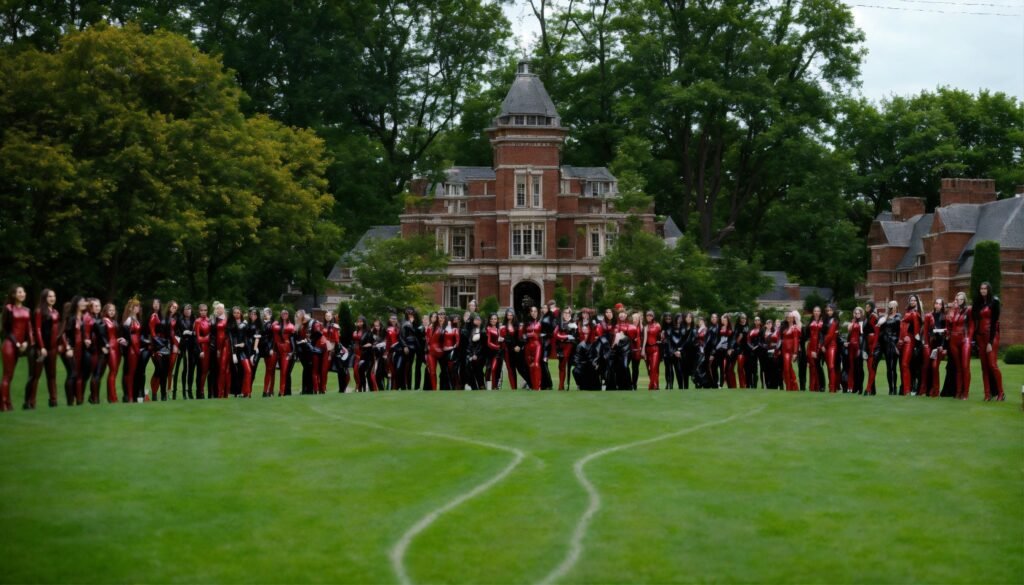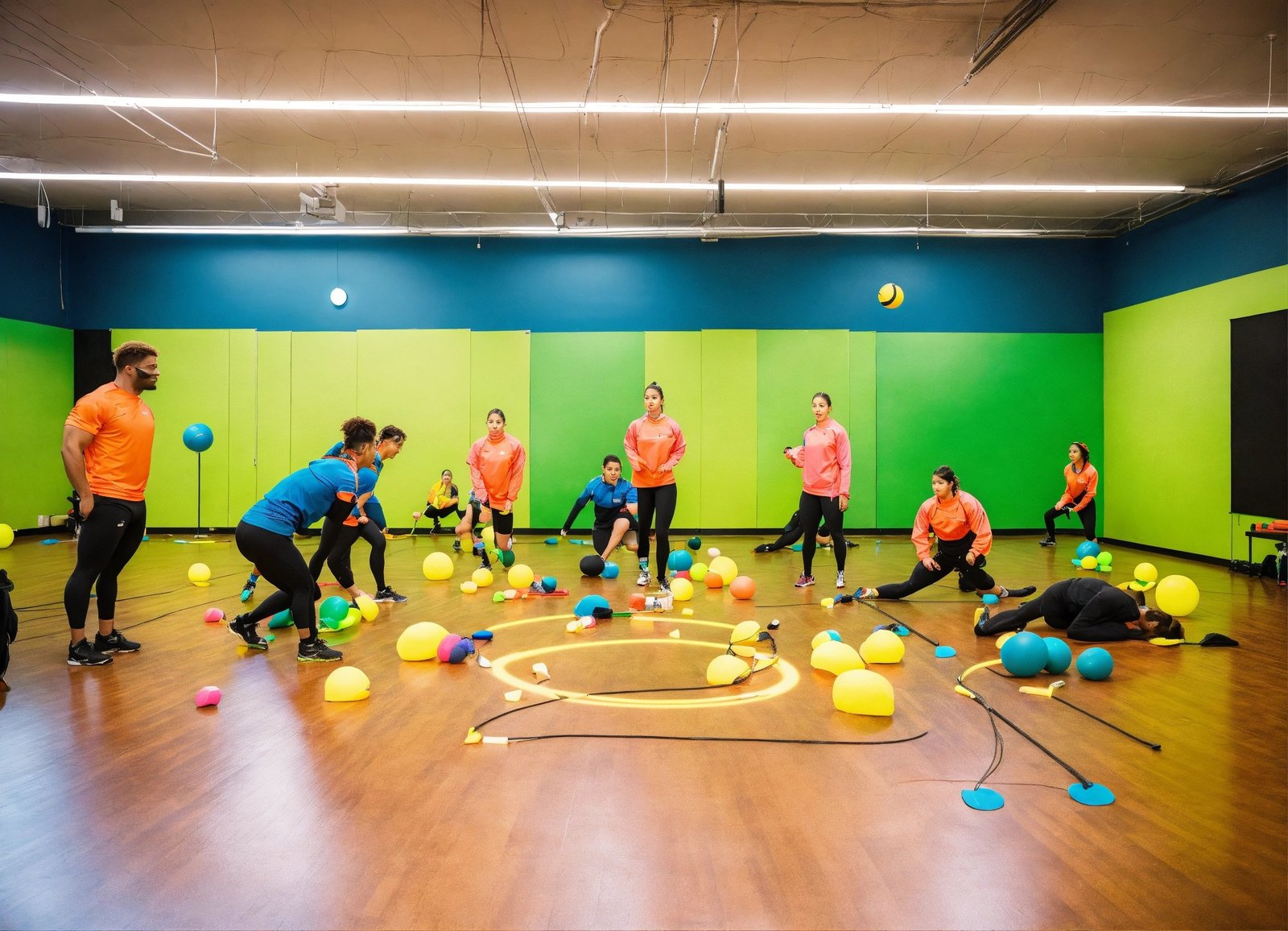Introduction
Getting involved in clubs, organizations, and extracurricular activities can be one of the most enriching parts of your educational experience. Not only do these activities allow you to explore your interests and passions, but they also help you develop valuable skills, make new friends, and enhance your resume. So, why not dive into the world of extracurriculars and see what you can discover?
Identifying Your Interests
Self-Assessment
Before you start joining clubs left and right, take a moment to think about what you enjoy doing. Are you passionate about sports, arts, or academics? Do you like helping others or working on community projects? A little self-reflection can go a long way in finding the right fit for you.
Exploring New Areas
Don’t limit yourself to what you already know. High school and college are the perfect times to step out of your comfort zone and try something new. You might discover a hidden talent or a new passion you never knew you had.
Types of Clubs and Organizations
Academic Clubs
If you’re someone who loves to learn, academic clubs might be right up your alley. These clubs focus on subjects like math, science, history, and literature, often offering additional learning opportunities outside the classroom.
Sports Teams
Whether you’re into competitive sports or just want to stay active, joining a sports team can be a great way to meet new people and stay healthy. From soccer to swimming, there’s usually something for everyone.
Arts and Culture Groups
For the creatively inclined, arts and culture groups offer a chance to express yourself through music, theater, dance, and visual arts. These groups often put on performances or exhibitions, giving you a platform to showcase your talents.
Social and Service Organizations
If making a difference is important to you, consider joining a social or service organization. These groups focus on community service, social justice, and other philanthropic efforts, allowing you to give back while gaining valuable experience.

How to Find Opportunities
School Resources
Your school is a great place to start when looking for clubs and organizations. Check out the bulletin boards, talk to teachers, or visit the school’s website to see what’s available.
Community Centers
Local community centers often host clubs and organizations that you can join. These might include sports leagues, art classes, or volunteer groups.
Online Platforms
In today’s digital age, many clubs and organizations have an online presence. Websites like Meetup or your school’s online portal can help you find groups that match your interests.
Joining School Clubs
Steps to Join
Most school clubs have a simple process for joining. This might include filling out a form, attending a meeting, or talking to the club’s advisor. Don’t be afraid to ask questions if you’re not sure what to do.
Making the Most of School Resources
Schools often provide resources to help clubs thrive, such as meeting spaces, funding, and promotional opportunities. Take advantage of these resources to make your club experience even better.

Getting Involved in Community Organizations
Volunteering
Volunteering is a great way to get involved in your community. Look for local nonprofits, hospitals, or animal shelters that need help. Volunteering not only benefits those in need but also enriches your own life with new experiences.
Community Events
Participating in community events is another way to get involved. These can include festivals, parades, and local sports events. They’re great opportunities to meet people and learn more about your community.
Extracurricular Activities for College Applications
How Involvement Helps
Colleges love to see students who are involved in extracurricular activities. It shows that you’re well-rounded and can manage your time effectively. Plus, it gives you something interesting to talk about in your application essays.
What Colleges Look For?
When it comes to extracurriculars, colleges look for depth over breadth. They want to see that you’ve made a significant commitment to a few activities rather than dabbling in many. Leadership roles and achievements in your extracurriculars can also make you stand out.
Balancing Academics and Extracurriculars
Time Management Tips
Balancing schoolwork and extracurriculars can be challenging, but it’s definitely doable with good time management. Use a planner to keep track of deadlines and schedule study time. Prioritize your tasks and avoid procrastination to stay on top of everything.
Prioritizing Tasks
Sometimes, you might need to prioritize one activity over another. Learn to identify what’s most important at any given time and focus on that. It’s okay to say no to new commitments if you’re already overwhelmed.

Leadership Roles in Clubs
Benefits of Leadership
Taking on a leadership role in a club can be incredibly rewarding. It teaches you how to manage a team, plan events, and solve problems. These skills are valuable in both college and your future career.
How to Attain a Leadership Position
If you’re interested in a leadership role, start by being an active and reliable member of the club. Show initiative and volunteer for responsibilities. Over time, your dedication will likely be recognized, and you may be elected or appointed to a leadership position.
Developing Skills Through Extracurriculars
Soft Skills
Extracurricular activities help you develop soft skills like communication, teamwork, and problem-solving. These are essential skills that will benefit you in any career.
Hard Skills
Depending on the activity, you might also develop hard skills. For example, being part of the debate club can improve your public speaking, while participating in a coding club can enhance your programming skills.
Building a Network
Meeting Like-Minded People
Joining clubs and organizations allows you to meet people who share your interests. These connections can lead to lasting friendships and a strong support system.
Professional Connections
Some extracurricular activities can also help you build professional connections. For example, joining a business club might give you the chance to meet local entrepreneurs and professionals in your field of interest.

Benefits of Long-Term Commitment
Depth vs. Breadth
Sticking with a few activities over several years can be more beneficial than joining many for a short time. Long-term commitment shows dedication and allows you to develop deeper skills and relationships.
Personal Growth
The personal growth you experience from long-term involvement in extracurricular activities can be profound. You learn about perseverance, responsibility, and the importance of working towards a goal.
Overcoming Common Challenges
Time Constraints
Managing time can be a big challenge, especially if you have a busy schedule. Use tools like calendars and to-do lists to help you stay organized. Sometimes, it’s also about making sacrifices, like cutting down on screen time to focus on more important tasks.
Burnout
It’s easy to get burned out if you’re juggling too many activities. Make sure to schedule some downtime for yourself to relax and recharge. It’s okay to take a break when you need it.
Social Anxiety
If you’re shy or have social anxiety, joining a new club can be intimidating. Start with smaller groups or activities that don’t require a lot of social interaction at first. Gradually, as you become more comfortable, you can get more involved.
Parental Involvement and Support
Encouraging Participation
Parents can play a crucial role in encouraging their children to get involved in extracurricular activities. Support from parents can make a big difference in a student’s willingness to try new things.
Providing Resources
Parents can also provide resources like transportation, supplies, or financial support for activities that have costs associated with them. Being involved and showing interest in your child’s activities can also be very motivating for them.

Conclusion
Extracurricular activities are more than just a way to pass the time. They offer a wealth of benefits, from personal growth and skill development to making lifelong friends and enhancing your college applications. So, don’t hesitate—find something that interests you and get involved. You never know where it might lead!
FAQs
How do I choose the right club or organization?
Start by considering your interests and what you enjoy doing. Don’t be afraid to try out a few different clubs to see which ones you like best.
Can I join multiple clubs?
Yes, you can join multiple clubs, but be mindful of your time. It’s better to be actively involved in a few than to spread yourself too thin.
What if I don’t like the club I join?
It’s okay to leave a club if it’s not the right fit for you. There’s no harm in trying something new and deciding it’s not for you.
How do extracurricular activities impact my future?
Extracurricular activities help you develop important skills, build a network, and make your college applications stand out. They can also help you discover your passions and career interests.
What are some ways to manage time effectively?
Use a planner or digital calendar to keep track of your commitments. Prioritize your tasks and don’t be afraid to say no if you’re feeling overwhelmed.
